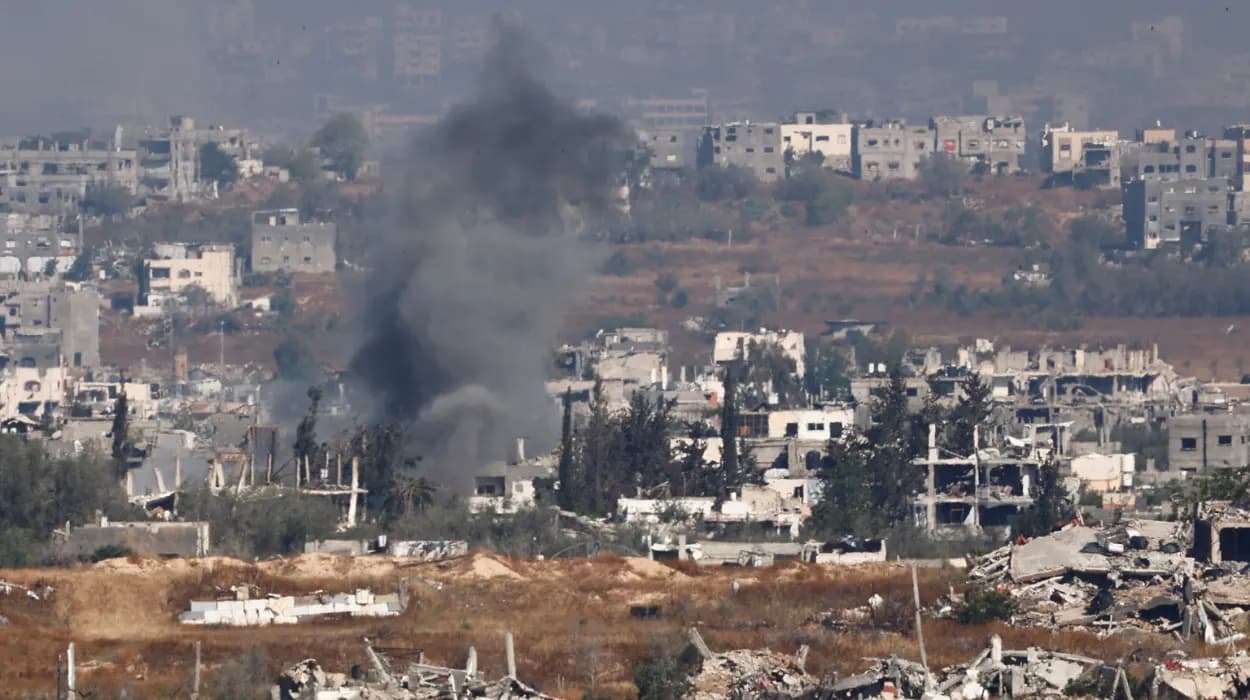Israel has informed mediators that it intends to establish
a security zone in northern Gaza and evict Palestinian residents from that
area. The move is part of ongoing Israeli military operations amid heightened
tensions and conflict in the Gaza Strip.
Israel communicates with Gaza mediators regarding northern Gaza
As reported by various media outlets covering the escalating
conflict, Israeli authorities have conveyed to mediators their plan to create a
security zone in northern Gaza by removing Palestinian residents from that
area. This strategy is viewed as a security measure by Israel amid increased
hostilities between Israel and Palestinian factions in Gaza.
Why is Israel planning to establish a security zone and evict Palestinians?
The rationale behind Israel’s proposed security zone is to
clear areas of northern Gaza to prevent attacks and to facilitate military
operations. According to reports from Geo News and other sources, the Israeli
government fears that armed Palestinian groups could use these populated zones
to launch attacks, thus endangering Israeli civilians and soldiers alike.
Evacuating residents from these regions is intended to neutralise potential
threats by creating a buffer zone.
How have mediators reacted to Israel’s announcement?
Although specific statements from mediators have not been
extensively documented, the revelation that Israel has communicated directly to
intermediaries indicates ongoing efforts to manage conflict escalation
diplomatically. Mediators play a critical role in facilitating ceasefire talks,
humanitarian aid, and evacuation procedures to reduce casualties. This
development underscores the complexity of negotiations amid active conflict
zones.
Implications for Palestinian civilians in northern Gaza
The proposed eviction of Palestinians from northern Gaza
raises serious humanitarian concerns. With northern Gaza home to many families,
displacement on such a scale could exacerbate an already dire situation,
including shortages of shelter, food, and medical care. Media outlets emphasise
the heightened vulnerability of civilians caught in the crossfire of military
strategies and the urgent need for protective measures and humanitarian
assistance.
Current status of the conflict and the international community’s response
Tensions remain high as Israeli forces continue military
operations in Gaza. International actors are closely monitoring the situation,
with several governments and organisations calling for restraint and the
protection of civilians. While condemnation of violence on both sides persists,
the international community also stresses the importance of dialogue and
mediation to prevent further escalation.
Notably, New York Times and BBC sources highlight that this
security zone plan is one element of Israel's broader military strategy. It
coincides with global calls for a ceasefire and peace talks, although ground
realities suggest an intensification of hostilities rather than de-escalation
currently.
How does this development fit into the broader Middle East conflict?
The announcement from Israel concerning northern Gaza
reflects ongoing cycles of military engagement and negotiation that have
characterised the Israeli-Palestinian conflict for decades. This specific
tactic of creating security zones and evacuation has been used in various forms
during past conflicts to secure territories and limit militant operations.
Experts suggest that such measures may prolong conflict in
the short term but could open space for longer-term negotiations depending on
the outcome of military and diplomatic efforts. However, the human cost,
particularly on vulnerable populations in Gaza, remains a significant and
persistent concern documented by on-ground reports and international observers.
Steps are being taken to document and report on this evolving story.
Journalists and news organisations covering this story rely
on verified information from official sources, mediators, eyewitness accounts,
and expert analysis to deliver timely and accurate reports. As recommended by
journalism guides such as BYJU'S and Grammarly, reporters follow the inverted
pyramid style, placing the most critical facts upfront and providing detailed
background and context thereafter.
The situation remains dynamic, requiring continuous updates.
Media outlets like Geo News consistently broadcast live reports and headlines
to keep global audiences informed about security developments and humanitarian
conditions.
Israel's announcement to mediators about plans to create a
security zone and evict Palestinians in northern Gaza marks a significant and
sensitive phase in the ongoing conflict, intertwining military objectives with
complex humanitarian challenges. Continued diplomatic efforts and international
attention will be crucial to managing the consequences for all parties
involved.
